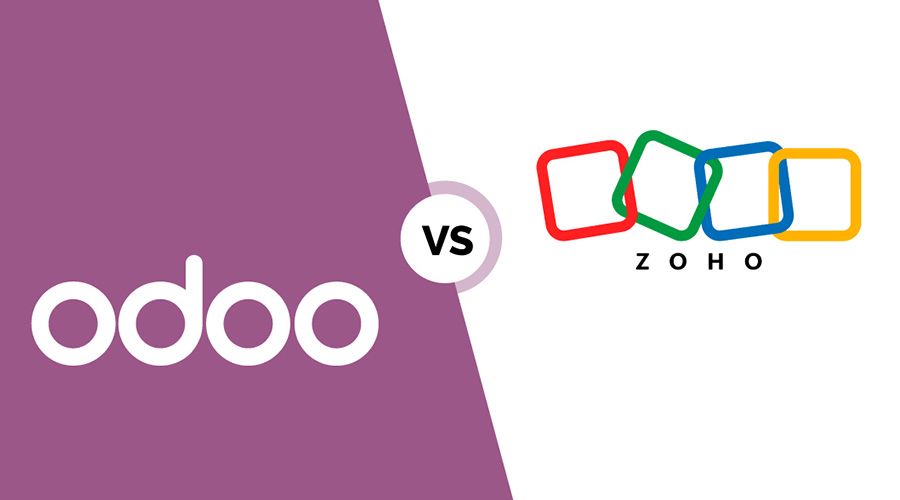Zoho One vs Odoo: A Detailed Comparison for Growing Businesses
Originally published: August 18, 2025 02:51:05 PM

When it comes to choosing an all-in-one business management solution, Zoho One and Odoo often appear at the top of the list. Both platforms aim to centralize your operations, reduce software complexity, and empower teams with tools for productivity, sales, finance, HR, and more.
However, the real difference lies in their approach, flexibility, and ecosystem. In this blog, we’ll explore Zoho One and Odoo in depth, covering their features, pricing, usability, scalability, and support, so you can make an informed decision for your business.
1. Platform Overview
Zoho One
- A cloud-based all-in-one business suite with 50+ integrated applications.
- Designed as a ready-to-use solution, focusing on smooth integration and simplicity.
- Covers CRM, finance, HR, marketing, collaboration, project management, analytics, website/eCommerce, and more.
- Best suited for SMBs and enterprises looking for affordable and scalable cloud solutions.
Odoo
- An open-source ERP platform offering a modular system.
- Provides core applications for sales, inventory, HR, accounting, and website/eCommerce.
- Offers flexibility and customization through apps and third-party modules.
- Popular among companies that require deep customization and self-hosting options.
2. Pricing Model
Zoho One
- Flat subscription fee: ~$26/user/month (annual billing).
- All 50+ apps are included—no extra charges.
- Simple and predictable pricing model, ideal for businesses scaling quickly.
Odoo
- Community edition: Free (but limited, no official support).
- Enterprise edition: Pricing starts around $25/user/month + extra costs for apps.
- Customization, hosting, and maintenance add to overall costs.
- Can be cost-effective for companies with strong in-house IT teams.
3. Implementation & Ease of Use
- Zoho One is plug-and-play, allowing businesses to start within days. Minimal IT expertise is required, making it ideal for SMEs with limited technical teams.
- Odoo requires implementation planning, often involving external developers or consultants. It offers powerful flexibility but demands more time and investment upfront.
4. Customization & Scalability
- Zoho One offers customization through Zoho Creator, workflows, and APIs. It’s flexible enough for most businesses but not as deeply customizable as open-source platforms.
- Odoo shines in custom development. Being open-source, businesses can tailor it to unique workflows, industry-specific needs, or even build entirely new modules.
5. Ecosystem & Integrations
- Zoho One: Comes with its own ecosystem of apps and integrates with popular third-party tools (Google Workspace, Microsoft 365, Slack, Shopify, etc.).
- Odoo: Leverages its large community and marketplace for add-ons, but integration quality varies depending on the developer.
6. Support & Community
- Zoho One: Offers 24/7 direct support, onboarding, and training resources. Backed by Zoho’s global partner network.
- Odoo: Support depends on whether you choose Enterprise (paid support) or Community (forums, freelancers, partners).
7 Which One Should You Choose?
Choose Zoho One if you want:
- A cost-effective, all-in-one cloud solution
- Seamless integration and quick deployment
- Minimal IT dependency and predictable pricing
Choose Odoo if you want:
- A customizable ERP tailored to your business model
- On-premise hosting or self-managed setup
- Flexibility to build unique workflows and apps
Final Thoughts
Both Zoho One and Odoo are excellent platforms—but they serve different business needs.
- If you value simplicity, affordability, and speed of adoption, Zoho One is your best bet.
- If you require deep customization, open-source flexibility, and control over hosting, Odoo is the way to go.
At the end of the day, the choice comes down to your business model, budget, and technical resources.
Join over 130,000 SEO and Google Ads experts. We provide a community to help you engage and learn from industry experts and influencers. Join Now
What if your entire business could run itself — and your work hours got shorter?